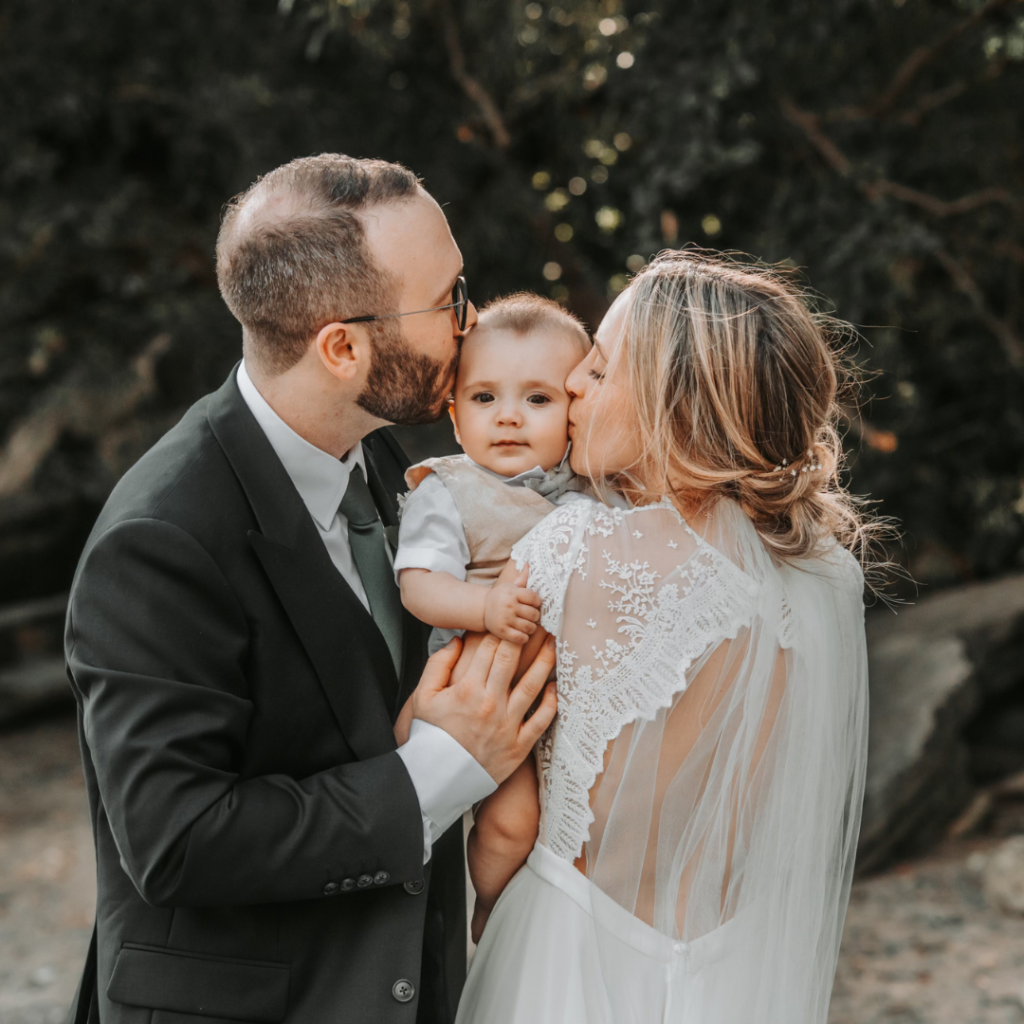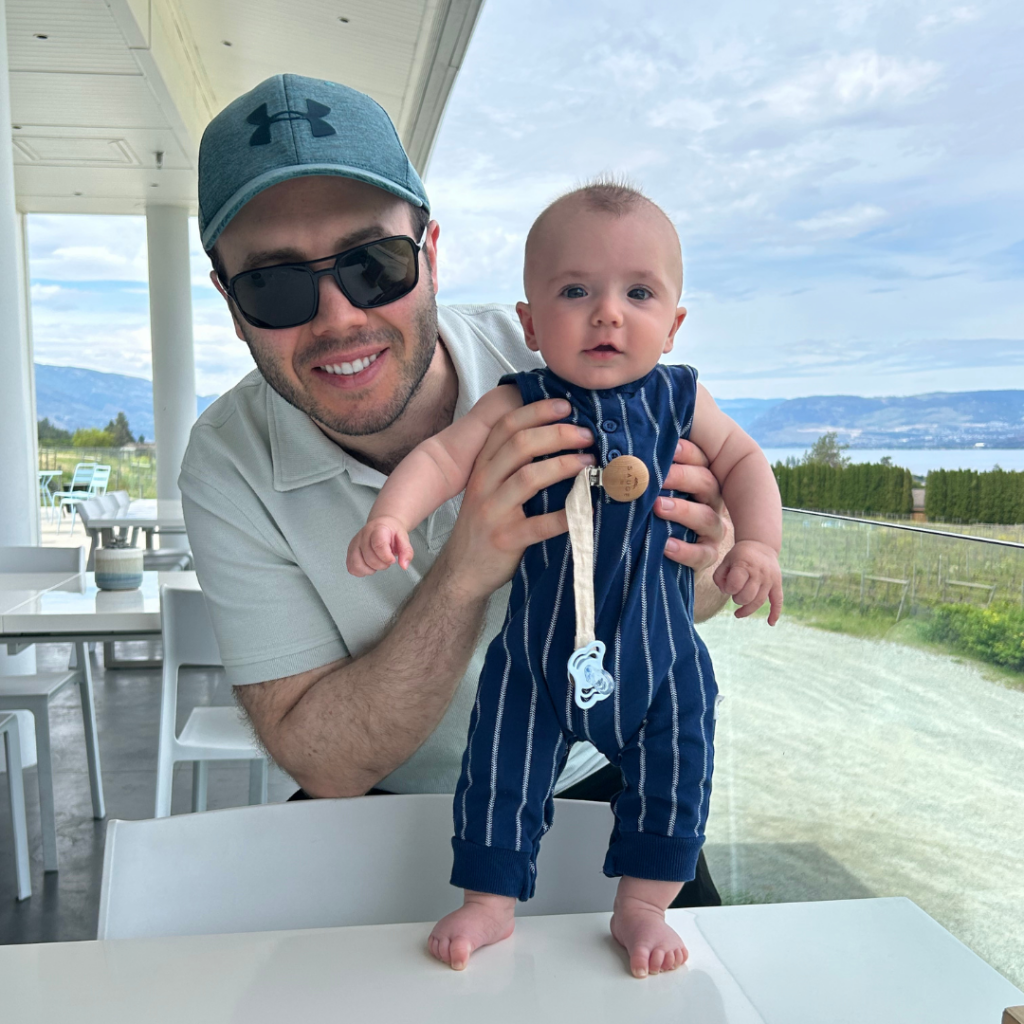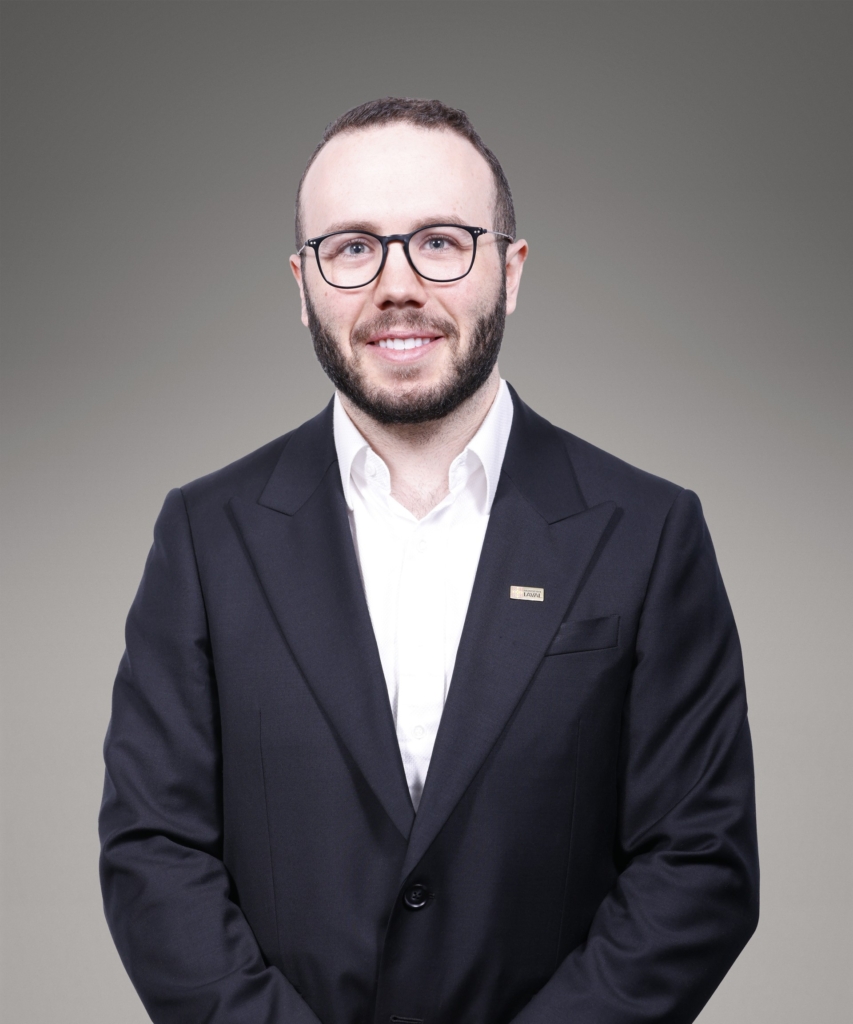
Whether he’s speeding down a mountain on his bike, or snowboard, or administering anesthesia to a patient in the operating room (OR), Dr. Michael Verret is no stranger to making decisions under pressure. Driven by curiosity, the anesthesiologist from Québec City decided to add research to his portfolio by becoming a clinician-scientist.
Dr. Verret recently completed his PhD in Epidemiology, co-supervised by Drs. Dean Fergusson and Manoj Lalu. He looked at alternatives to opioids in surgical care for the very patients he was so often seeing in his anesthesia practice. His findings changed clinical and research practices regarding opioid alternatives administration in the OR — and won him the 2024 Grimshaw Researcher in Training Award.
Find out what might surprise you about anesthesia and how Dr. Verret changed practice through his research at The Ottawa Hospital.
Q: Can you tell us about your early years?
“I enjoyed the quick decision making of those sports, that I needed to adapt and embrace the challenges.”
— Dr. Michael Verret
A: At school, my favourite subjects were math and philosophy. Outside of school, I loved doing sports, especially ones with a certain level of intensity, like mountain biking and snowboarding. I enjoyed the quick decision making of those sports, that I needed to adapt and embrace the challenges, and that it involved discovering nature. During the winter I was teaching snowboarding, so I was away every weekend snowboarding in the mountains.
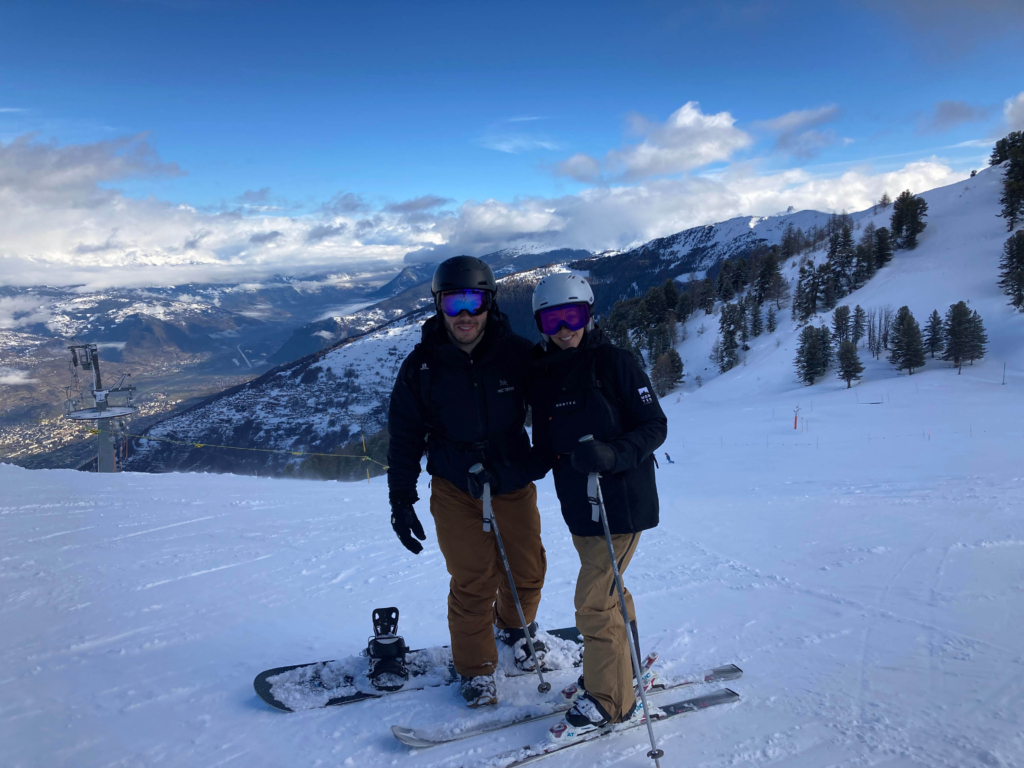
Q: When did you realize you wanted to pursue medicine, and specifically anesthesiology?
A: In high school, I was thinking about becoming a physician, but I was also considering policing. Both professions inspired me in terms of the discipline and rigour involved. I wanted to improve safety and health.
But then, a good friend’s father was a sales representative for surgical suite supplies. He asked me to come with him to the OR one day to see if I’d enjoy it. I was really impressed by the sense of team spirit and how the physicians, and especially the anesthesiologists, were applying their understanding of how the body works to help the patient and improve outcomes. I was about 15, and from that point forward, I wanted to be a physician, and specifically an anesthesiologist.
Q: What is something people might not know about the field of anesthesiology?
A: Often, people don’t know what exactly anesthesia is, or, they don’t know we’re actually physicians. When doing planned or emergency surgery, we prepare the patient, we make sure everything is optimized and stabilized. When providing anesthesia, we are also responsible for monitoring, preventing, and treating complications that may occur before, during, and immediately after surgery. Ultimately, we also aim to ensure an optimal recovery for the patient after surgery. We also go to the birthing ward to help with pain management for childbirth. And, we work in pain clinics to manage acute and chronic pain. Some of us also work with patients in critical care.
What’s great about anesthesia is that it’s one of the few specialities where you give a medication, you understand what effect it will have, and you see the results right away. You have to be able to understand quickly what’s happening and how to act upon it. There are also key moments with the patient, where you need to provide reassurance and establish a relationship of trust in short period of time.
When we’re on call in anesthesia, we need to prepare ourselves, the team, and the patient to optimize everything, and we need to adapt quickly to challenges that may arise — similar to how you would for a sport or competition.
Q: When did you begin to pursue research?
A: Early on during my residency, I had an interest in research because I wanted to know where the knowledge was coming from. I wanted to base my decisions on good evidence. I enrolled myself in the Clinical Investigator Program, which is a Royal College of Physicians and Surgeons program, and I did a master’s in Clinical Epidemiology at the Université Laval. The more I did research, the more I wanted to not only understand it but also generate new knowledge myself.
During my master’s, I did a large systematic review, meaning I synthesized all the knowledge on a topic at the time. It was : the effectiveness of gabapentinoids’, a class of opioid alternative, in surgical care. What I showed with this systematic review is that it shouldn’t be used to help manage pain and improve recovery, because there were no net benefits. It reduced opioid use in the short term, but it also had serious side effects. It brought home the fact that we need to be cautious of how we apply certain solutions to the opioid crisis.
Q: What is the research for which you’re being given the Grimshaw Researcher in Training Award?
A: It is in continuity with what I worked on in my master’s. Based on what we found in my systematic review, for my PhD, I decided to develop a whole research program, not only about this specific opioid alternative, but about all the opioid alternatives that are currently used. There are over 20 medications being used, and we’re looking to improve their appropriate use.
First, I evaluated the current knowledge gap and the current literature on the effectiveness of these alternatives. Then, I did a survey of all Canadian anesthesiologists to describe their reported practices and beliefs on the use of opioid alternatives. Next, we’ll have large-scale clinical trials on two of the specific alternatives, dexmedetomidine and lidocaine, and the pilot trial will be conducted in multiple centres in Canada.
Q: How will this research make a difference for patients and healthcare providers?
A: For patients, we aim to improve their recovery using patient-centred outcomes. Traditional outcomes might say we reduce opioid use in the short term, but what we found was the most important for patients and clinicians was to evaluate holistic outcomes — like the quality of recovery, function, pain, etc. — we generate knowledge that’s more beneficial.
“When we improve recovery, we’re improving the whole hospital system.”
— Dr. Michael Verret
For the hospital, when we improve recovery, we can often reduce the length of stay and readmission. When we improve recovery, we’re improving the whole hospital system.
Q: What drew you to The Ottawa Hospital for your research?
A: I met with one of my supervisors, Dr. Fergusson, on several occasions before I came to Ottawa. Based on these meetings, I knew Dr. Fergusson was one of a kind, not just because of his scientific competency, but also as a mentor. He’s incredible in terms of his values and his sense of ethics.
Then there’s the whole team and environment at The Ottawa Hospital. There’s the Blueprint Translational Research Group, with which I was working for my PhD. My co-supervisor, Dr. Manoj Lalu, was co-leading this group with Dr. Fergusson, and the rigour, skills, organization, and mentorship provided were excellent.
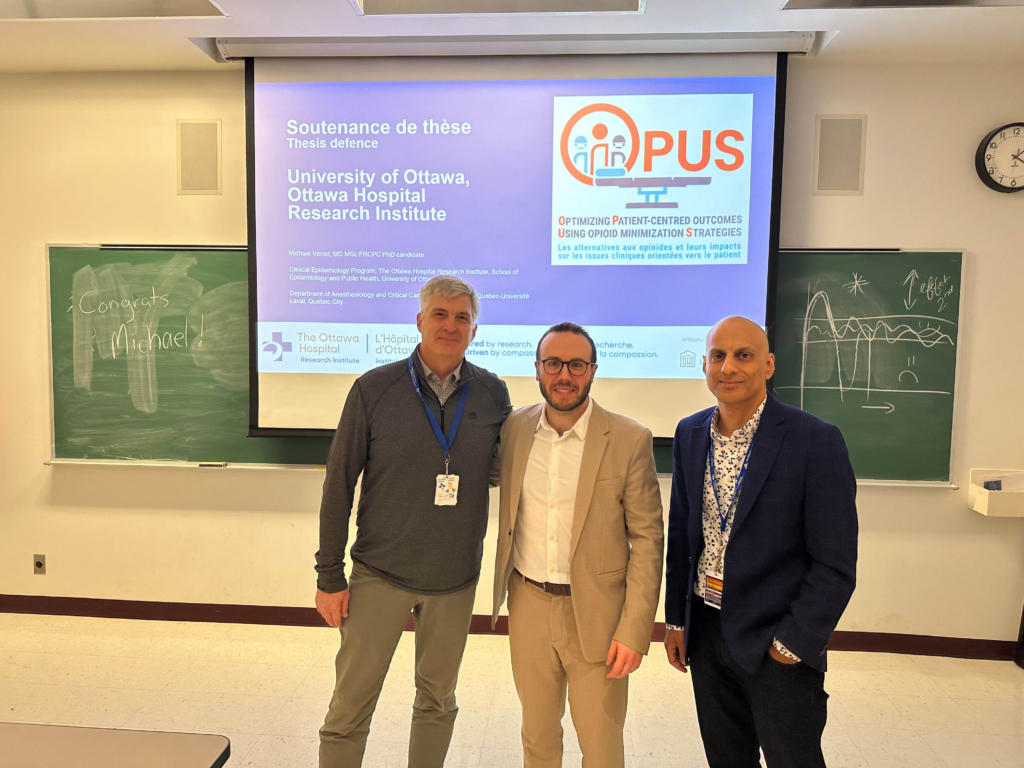
Q: How does it feel to receive the Grimshaw Researcher in Training Award?
It feels really good and motivating. As I am developing my research program — Optimizing Patient-centred outcomes Using opioid minimization Strategies (OPUS) — my goal is to generate knowledge that will be relevant, applicable, and impactful. It’s an honour and a privilege to receive an award supporting this important research goal.
Q: Where would we find you when you’re not at work?
A: Most of the time, you’ll find me with my new baby and my wife. It’s been really exciting. The day after I submitted my thesis, our baby was born. It’s been really fantastic becoming a father and seeing him evolve and grow. I’d say I spend most of my time with him — going to the park or for walks on the St. Lawrence River in Québec city.
